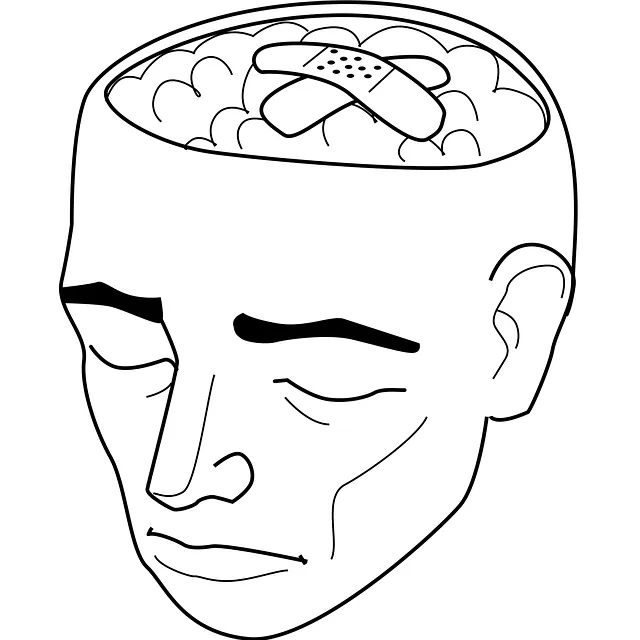Kaiser Permanente behavioral health services Westminster offers comprehensive Crisis Intervention Team (CIT) training programs focused on de-escalation, stigma reduction, and community support. These programs empower individuals from diverse backgrounds with Mind Over Matter principles, enhancing self-awareness, emotional well-being, and resilience through interactive workshops, role-playing scenarios, and debriefing sessions. By fostering empathy, cultural competency, and advocacy, these CIT training initiatives transform communities into safer, more supportive environments for mental health crises.
“In today’s complex healthcare landscape, effective crisis intervention teams (CITs) play a pivotal role in supporting individuals during mental health crises. This article explores the crucial aspect of CIT training programs, focusing on real-world examples like Kaiser Permanente Behavioral Health Services Westminster. We’ll delve into key components, training methodologies, and best practices that ensure CIT members are equipped to handle crises. Understanding these programs is essential for enhancing community support systems and improving patient outcomes, as demonstrated by successful initiatives like Kaiser Permanente’s approach.”
- Understanding Crisis Intervention Teams: A Brief Overview
- Kaiser Permanente Behavioral Health Services Westminster: An Introduction
- Key Components of Effective Crisis Intervention Training
- Training Methodologies and Best Practices
- Benefits and Impact on Community Support Systems
Understanding Crisis Intervention Teams: A Brief Overview

Crisis Intervention Teams (CITs) are specialized groups designed to provide immediate and effective support during crises, focusing on de-escalation and safety. These teams play a vital role in public safety, especially in communities with high rates of mental health issues. At Kaiser Permanente behavioral health services Westminster, for instance, CIT training programs empower individuals from diverse backgrounds to handle critical situations effectively.
The core of CIT training involves enhancing self-awareness exercises and emotional well-being promotion techniques, enabling team members to understand their own emotions and the unique dynamics of each crisis. Beyond direct intervention skills, these programs often include public awareness campaigns development, fostering a collective effort to destigmatize mental health issues and encourage proactive support systems within communities.
Kaiser Permanente Behavioral Health Services Westminster: An Introduction

Kaiser Permanente Behavioral Health Services Westminster stands as a beacon of hope and support for individuals navigating mental health challenges. This program offers comprehensive training tailored to crisis intervention teams, empowering them with the Mind Over Matter Principles necessary to effectively assist those in distress. By focusing on techniques that promote confidence boosting and mood management, participants gain valuable skills to de-escalate crises and foster positive outcomes.
Through interactive workshops and practical exercises, the Westminster initiative equips teams with strategies to recognize and respond to a range of behavioral health issues. The program’s curriculum is designed to enhance empathy, improve communication, and build resilience among team members, ensuring they are prepared to provide compassionate and effective interventions in their communities.
Key Components of Effective Crisis Intervention Training

Effective crisis intervention team training programs are multifaceted, encompassing essential components to prepare healthcare providers for high-stress situations. One key element is resilience building, equipping teams with coping strategies to manage their own emotional well-being during crises. This fosters sustained performance and prevents burnout, crucial aspects in delivering quality care, especially within organizations like Kaiser Permanente behavioral health services Westminster.
Another vital component is empathy-building strategies. Training should emphasize the importance of active listening, understanding, and connecting with individuals in crisis. This cultural competency, often highlighted in healthcare provider training programs, is enhanced through role-playing scenarios that simulate diverse situations. For instance, a program focused on cultural competency might explore how to navigate communication barriers and show genuine care for patients from varied backgrounds, ensuring every individual receives sensitive support tailored to their unique needs.
Training Methodologies and Best Practices

Effective crisis intervention team (CIT) training programs employ a variety of methodologies designed to equip participants with practical skills for handling mental health crises. These include interactive workshops, role-playing scenarios, and debriefing sessions that simulate real-life situations. At Kaiser Permanente behavioral health services Westminster, for instance, training often involves a blend of theoretical knowledge and hands-on experience. Facilitators encourage active participation to ensure that team members understand the nuances of crisis intervention and can apply coping skills development techniques in diverse settings.
Beyond technical proficiency, best practices in CIT training emphasize the importance of mental illness stigma reduction efforts. By fostering an environment of understanding and empathy, these programs aim to break down barriers that often prevent individuals from seeking help. Additionally, they delve into mental health policy analysis and advocacy, empowering participants to become agents of change in their communities. Through collaborative learning and continuous improvement, CIT training programs equip teams with the tools necessary to navigate complex crises effectively while promoting better mental health outcomes.
Benefits and Impact on Community Support Systems

Crisis intervention team training programs play a pivotal role in enhancing community support systems by empowering individuals to handle crises effectively. These programs, such as those offered by Kaiser Permanente behavioral health services in Westminster, equip participants with valuable tools and knowledge. Through interactive sessions and practical exercises, including Self-Awareness Exercises and Self-Care Practices, trainees learn to recognize signs of distress and provide immediate, appropriate Crisis Intervention Guidance.
The impact extends beyond the individuals who undergo the training; it reverberates throughout the community. Trained crisis intervention teams can swiftly de-escalate situations that might otherwise escalate, reducing the strain on emergency services. Moreover, these programs foster a culture of support where bystanders feel equipped to lend a helping hand, creating a more resilient and responsive community fabric.
Crisis intervention team (CIT) training programs, such as those offered by Kaiser Permanente Behavioral Health Services Westminster, play a pivotal role in enhancing community support systems. By equipping individuals with the necessary skills and knowledge, these programs foster effective crisis management, improve mental health outcomes, and promote overall well-being. Incorporating evidence-based methodologies ensures that CIT members are prepared to navigate complex situations, providing immediate and compassionate support. This training is instrumental in building resilient communities where crises are met with swift and efficient intervention.






